Projects
Valuing Water Global Assessment


The sustainability nonprofit Ceres is joining forces with the Global Institute for Water Security to draw attention to the strong linkage between unsustainable corporate practices and major threats to our global water water supplies. GIWS will conduct science-based research and analysis on industry practices in water-intensive sectors that have led to increased water scarcity and pollution, and threatened ecosystems and accessibility in communities around the globe. The global food agribusiness sector - which uses more than 70% of the world's fresh water to grow crops, feed livestock and process ingredients - will be among those industries analyzed.
The findings will be used to inform a new set of leading investor expectations for companies to improve their overall water stewardship in business operations and supply chains. To ensure the research and analysis is relevant to capital market audiences, the effort will also be informed by the ongoing work of the Valuing Water Finance Task Force, an influential group of pension funds and commercial banks that launched last month. Ceres has partnered with the Government of Netherlands Valuing Water Initiative on this overall effort to catalyze capital market leaders to address water risk as a financial risk.
Report
The report, The Global Assessment of Private Sector Impacts on Water, is now available for online viewing (click below). To download the full report, please visit the Ceres website (click below).
GIWS Team
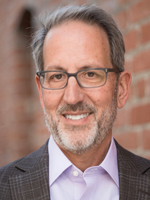 Jay Famiglietti is a Global Futures Professor in the School of Sustainability, in the College of Global Futures. He is Professor Emeritus from the University of Saskatchewan, where he was Executive Director of the Global Institute for Water Security, and where he held the Canada 150 Research Chair in Hydrology and Remote Sensing. He was the founding Chief Scientist of the Silicon Valley Y-Combinator tech startup, Waterplan, which he continues to advise. Before moving to USask, he served as the Senior Water Scientist at the NASA Jet Propulsion Laboratory at the California Institute of Technology.
Jay Famiglietti is a Global Futures Professor in the School of Sustainability, in the College of Global Futures. He is Professor Emeritus from the University of Saskatchewan, where he was Executive Director of the Global Institute for Water Security, and where he held the Canada 150 Research Chair in Hydrology and Remote Sensing. He was the founding Chief Scientist of the Silicon Valley Y-Combinator tech startup, Waterplan, which he continues to advise. Before moving to USask, he served as the Senior Water Scientist at the NASA Jet Propulsion Laboratory at the California Institute of Technology.
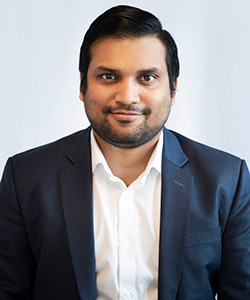
Palash Sanyal works as the Strategic Partnership and Project Manager at the Global Institute for Water Security, University of Saskatchewan (USask), where he is closely involved with Water Day on the Hill event, Valuing Water Global Assessment Report development with CERES, and water-food nexus/security initiatives. He is also an Action Canada 2020 Fellow.
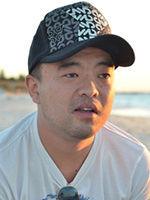
Li obtained his PhD in Environmental Science from Curtin University in Australia, he also has a master’s degree in Management Science and Engineering and a bachelor degree in Business Administration. Prior to joining GIWS, Li worked as a postdoctoral researcher at the School of Environment and Society in Tokyo Institute of Technology. His research interests generally lie in the fields of: 1) Complex systems analysis with specific focuses on socio-hydrology and social-ecological systems of rivers and lakes; 2) Evidence-based approach for water management; 3) Risk assessment and management in response to natural disasters; and 4) Science-policy interface in environmental contexts. Li has published several papers on integrating knowledge in social-ecological resilience and synthesizing evidence for sustainability management of water systems using big-data analytics. In this project, Li is a postdoctoral coordinator.
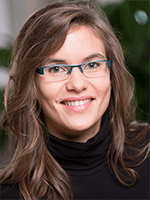
Kerstin Bluhm is a biologist, environmental toxicologist by training, and postdoctoral fellow with the Global Institute for Water Security at the University of Saskatchewan. She holds a doctoral degree (PhD) in natural science from the RWTH Aachen University in Germany and a German diploma (MSc equivalent) in biology from the Ruprecht-Karls University of Heidelberg, Germany. She has a background in generating and analyzing big data derived from from laboratory experiments, expertise in microinjections, and has developed a test strategy for the safety assessment of biofuels, all within a water-related context.
Scientific Advisory Committee (SAC)
The Scientific Advisory Committee is a group of academics, scholars, and scientists convened to help advise on the design and development of the report.
Dr. Kate Brauman is a ’20-’21 Water and Climate Resilience Fellow at the US Department of Defense through a AAAS Science Technology Policy Fellowship. As part of this fellowship, she is on leave from the University of Minnesota’s Institute on the Environment, where she was the Lead Scientist for the Global Water Initiative and a member of the Natural Capital Project science team. Brauman’s research integrates hydrology and land use with economics and policy, including projects as diverse as payments for watershed services, global variation in “crop per drop”, and worldwide trends in water consumption and availability. Brauman received her doctorate from Stanford University and her undergraduate degree from Columbia University. She was a Coordinating Lead Author for the Global Assessment of the Intergovernmental Platform on Biodiversity and Ecosystem Services (IPBES), a Lead Author for the UNEP Global Synthesis Report, and a 2018 AAAS Leshner Leadership Fellow for Public Engagement.
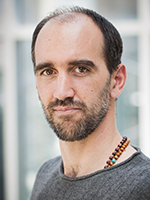 Tom Gleeson is a President’s Chair at University of Victoria, Canada leading research on groundwater sustainability, large-scale groundwater systems and groundwater-surface water interactions. He loves new ideas, food and yoga, helping people and the world, and received the AGU Early Career Hydrology Award, and founded the global groundwater blogging collective, water underground.
Tom Gleeson is a President’s Chair at University of Victoria, Canada leading research on groundwater sustainability, large-scale groundwater systems and groundwater-surface water interactions. He loves new ideas, food and yoga, helping people and the world, and received the AGU Early Career Hydrology Award, and founded the global groundwater blogging collective, water underground.
 Rick Hogeboom is Executive Director at the Water Footprint Network (WFN), an international expertise center based in the Netherlands. With WFN, he uses the water footprint concept to promote the transition toward sustainable, fair and efficient use of the world’s fresh water. He is also Assistant Professor at the University of Twente, The Netherlands, where he studies water allocation strategies in relation to water scarcity, and potential response options for actors involved, including consumers, businesses, NGOs, governments, and investors. Young and energetic, Rick aims to foster and facilitate science-based, practical and inclusive water stewardship.
Rick Hogeboom is Executive Director at the Water Footprint Network (WFN), an international expertise center based in the Netherlands. With WFN, he uses the water footprint concept to promote the transition toward sustainable, fair and efficient use of the world’s fresh water. He is also Assistant Professor at the University of Twente, The Netherlands, where he studies water allocation strategies in relation to water scarcity, and potential response options for actors involved, including consumers, businesses, NGOs, governments, and investors. Young and energetic, Rick aims to foster and facilitate science-based, practical and inclusive water stewardship.
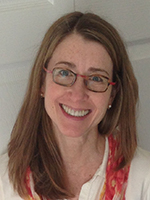 Annette Huber-Lee is a Senior Scientist at SEI. She has more than 20 years of experience in international planning and management of water resources. Dr Huber-Lee focuses on the integration of economic and engineering approaches to find robust solutions to socio-ecological problems, using cross-sector and cross-scale analyses in the context of water conflicts. She has previously served as Center Director for SEI Asia, Professor at Tufts University, Science Leader for the Challenge Program on Water and Food at the International Food Policy Research Institute. She has a Ph.D. in Engineering Sciences from Harvard University, an M.S. in Civil Engineering from the Massachusetts Institute of Technology, and a B.S. in Agricultural Engineering from Cornell University.
Annette Huber-Lee is a Senior Scientist at SEI. She has more than 20 years of experience in international planning and management of water resources. Dr Huber-Lee focuses on the integration of economic and engineering approaches to find robust solutions to socio-ecological problems, using cross-sector and cross-scale analyses in the context of water conflicts. She has previously served as Center Director for SEI Asia, Professor at Tufts University, Science Leader for the Challenge Program on Water and Food at the International Food Policy Research Institute. She has a Ph.D. in Engineering Sciences from Harvard University, an M.S. in Civil Engineering from the Massachusetts Institute of Technology, and a B.S. in Agricultural Engineering from Cornell University.
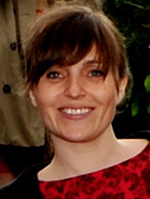 Laureline Josset is an Associate Research Scientist at the Columbia Water Center, where she works on the evaluation of water stresses through integrated assessments, the optimization of management strategy for water quantity and quality, and the transitions in the Food-Energy-Water nexus. Collaborating with actors from the government of New York State (NYSERDA) and the civil society (The Nature Conservancy), Laureline focuses on the quantification of risks due to uncertain climate and data to inform decisions. Before joining Columbia, she obtained a bachelor and master degree in Physics at the EPFL (CH) and a Ph.D. in Earth Sciences at the University of Lausanne (CH). Laureline teaches for the Sustainable Management program classes on water system analysis and groundwater management with a particular emphasis on conceptual modeling and system thinking.
Laureline Josset is an Associate Research Scientist at the Columbia Water Center, where she works on the evaluation of water stresses through integrated assessments, the optimization of management strategy for water quantity and quality, and the transitions in the Food-Energy-Water nexus. Collaborating with actors from the government of New York State (NYSERDA) and the civil society (The Nature Conservancy), Laureline focuses on the quantification of risks due to uncertain climate and data to inform decisions. Before joining Columbia, she obtained a bachelor and master degree in Physics at the EPFL (CH) and a Ph.D. in Earth Sciences at the University of Lausanne (CH). Laureline teaches for the Sustainable Management program classes on water system analysis and groundwater management with a particular emphasis on conceptual modeling and system thinking.
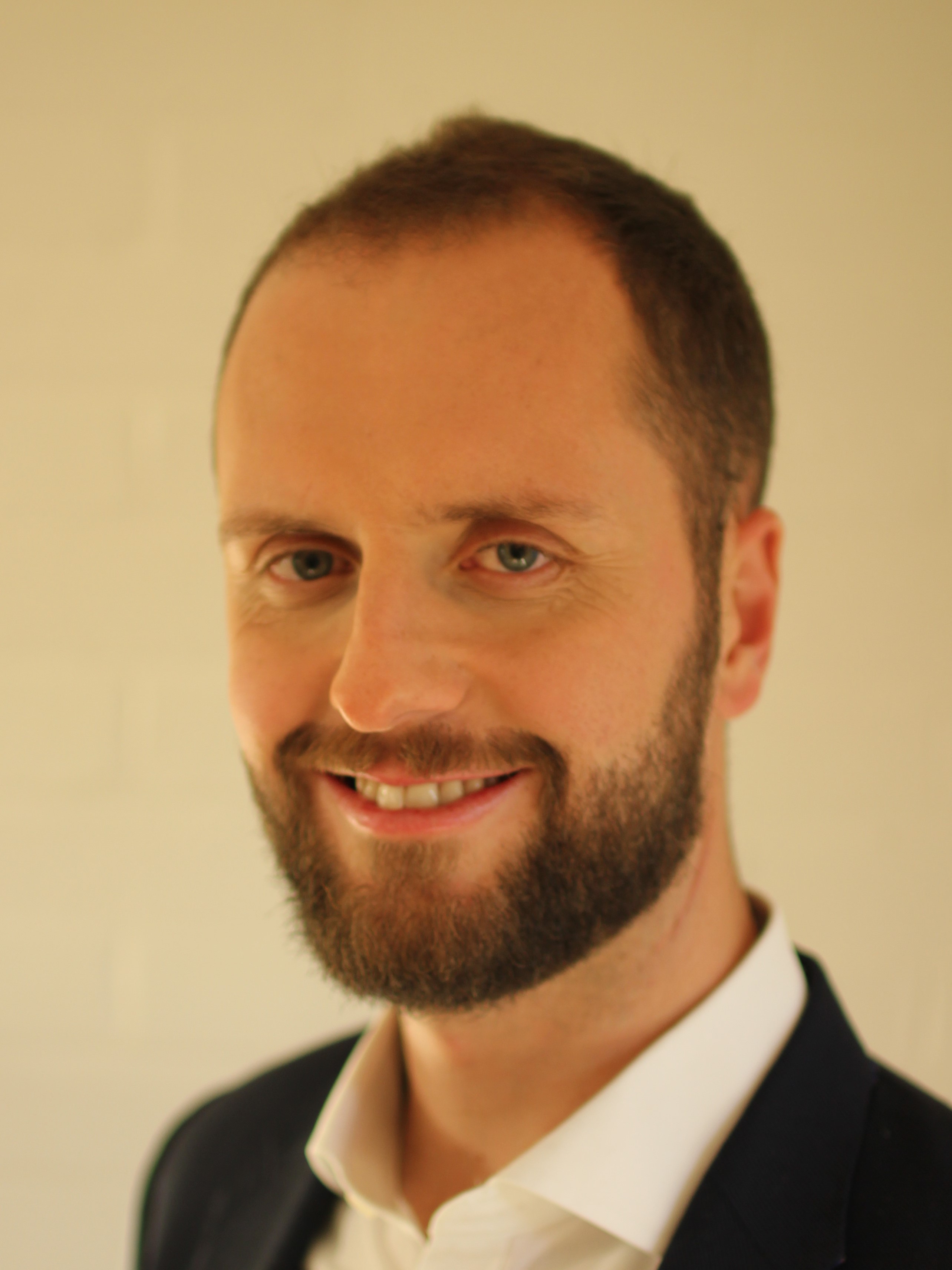
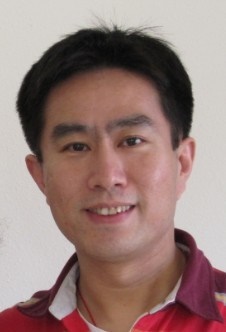 Dr. Yong Jiang is a staff water and environmental economist at IHE Delft Institute for Water Education in the Netherlands. He coordinates and teaches water economics, mentors graduate student research, and delivers capacity-building workshops abroad. He also conducts research with rich experience at the interface of science, economics, and policy, and most of his research work involves quantitative economic modeling and an integrated approach to environmental and natural resource management and policy in a multidisciplinary setting. His recent interests include economics and governance of nature-based solutions and water financing through policy and management innovations and capacity development.
Dr. Yong Jiang is a staff water and environmental economist at IHE Delft Institute for Water Education in the Netherlands. He coordinates and teaches water economics, mentors graduate student research, and delivers capacity-building workshops abroad. He also conducts research with rich experience at the interface of science, economics, and policy, and most of his research work involves quantitative economic modeling and an integrated approach to environmental and natural resource management and policy in a multidisciplinary setting. His recent interests include economics and governance of nature-based solutions and water financing through policy and management innovations and capacity development.
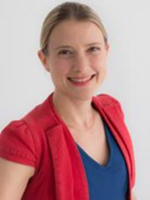 Dr. Nadja Kunz is an Assistant Professor at the University of British Columbia, jointly appointed in the UBC School of Public Policy and Global Affairs and Norman B Keevil Mining Engineering. She holds a Canada Research Chair in Mine Water Management and Stewardship, and her work seeks to revolutionize the use of water in mining regions to reduce risks for businesses, the environment, and society. Previously, Nadja worked as an engineer within the mining, oil and gas, fertilizer and paper-manufacturing sectors, and she occasionally consults as a water specialist for the International Finance Corporation.
Dr. Nadja Kunz is an Assistant Professor at the University of British Columbia, jointly appointed in the UBC School of Public Policy and Global Affairs and Norman B Keevil Mining Engineering. She holds a Canada Research Chair in Mine Water Management and Stewardship, and her work seeks to revolutionize the use of water in mining regions to reduce risks for businesses, the environment, and society. Previously, Nadja worked as an engineer within the mining, oil and gas, fertilizer and paper-manufacturing sectors, and she occasionally consults as a water specialist for the International Finance Corporation.
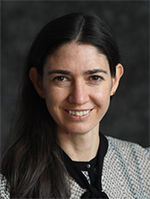 Paulina Concha Larrauri is a Senior Staff Associate at the Columbia Water Center. She obtained a B.S. in Chemistry from the ITESM in Monterrey, Mexico, and a M.S. degree in Environmental Engineering from Columbia University. She worked for five years in engineering at Procter & Gamble prior to starting a career in water. She has worked with the private and public sectors on several climate risk assessments and management projects. Her research includes climate risk in infrastructure (dams and tailings dams), a risk-based approach for the valuation of water, developing strategies for water management and climate risk in agricultural supply chains, evaluating the feasibility of implementing decentralized water systems, and the effect of climate on human migration.
Paulina Concha Larrauri is a Senior Staff Associate at the Columbia Water Center. She obtained a B.S. in Chemistry from the ITESM in Monterrey, Mexico, and a M.S. degree in Environmental Engineering from Columbia University. She worked for five years in engineering at Procter & Gamble prior to starting a career in water. She has worked with the private and public sectors on several climate risk assessments and management projects. Her research includes climate risk in infrastructure (dams and tailings dams), a risk-based approach for the valuation of water, developing strategies for water management and climate risk in agricultural supply chains, evaluating the feasibility of implementing decentralized water systems, and the effect of climate on human migration.
 John H. Matthews is the Executive Director and co-founder of the Alliance for Global Water Adaptation (AGWA). Since 2003, he has integrated technical and policy approaches for water and climate resilience over five continents and more than 30 countries. His scientific work has appeared in Science, Nature Climate Change, the PLoS family, and many other peer-review journals. His engagement with the bonds market in water infrastructure investments has resulted in more than 8 billion USD in resilience-certified green bonds. He has a PhD in aquatic ecology from the University of Texas, Austin and lives in Corvallis, Oregon.
John H. Matthews is the Executive Director and co-founder of the Alliance for Global Water Adaptation (AGWA). Since 2003, he has integrated technical and policy approaches for water and climate resilience over five continents and more than 30 countries. His scientific work has appeared in Science, Nature Climate Change, the PLoS family, and many other peer-review journals. His engagement with the bonds market in water infrastructure investments has resulted in more than 8 billion USD in resilience-certified green bonds. He has a PhD in aquatic ecology from the University of Texas, Austin and lives in Corvallis, Oregon.
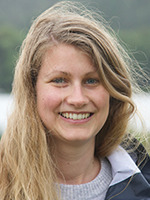
Dr. Therese Rudebeck works on corporate water stewardship and water as a financial risk. Her expertise lies in developing incentives to enable private sector actor to integrate water risks and opportunities in strategies and decision-making. Before joining SIWI, she worked as a lecturer in Environmental and Ecological Economics at University of St Andrews, and as a Research Associate at the Smith School of Enterprise and the Environment, University of Oxford. She has also worked with Water Foundry, the Global Water Partnership, the 2030 Water Resources Group, and the European Water Stewardship. She holds a PhD and an MPhil from University of Cambridge, and an MA in Sustainable Development and International Relations from University of St Andrews.
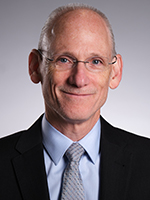 Aaron Salzberg is the Director of the Water Institute at UNC. The goal of the Water Institute is to contribute to a more water secure world through research, policy, and practice. From 2010 to 2017, Aaron served as the Special Coordinator for Water Resources in the U.S. Department of State where he led the development and implementation of U.S. foreign policy on drinking water and sanitation, water resources management, and transboundary water issues. Aaron has a Ph.D. in Genetic Toxicology and a M.S. in Technology and Policy from MIT, and a M.S. in Aerospace Engineering from the University of Maryland.
Aaron Salzberg is the Director of the Water Institute at UNC. The goal of the Water Institute is to contribute to a more water secure world through research, policy, and practice. From 2010 to 2017, Aaron served as the Special Coordinator for Water Resources in the U.S. Department of State where he led the development and implementation of U.S. foreign policy on drinking water and sanitation, water resources management, and transboundary water issues. Aaron has a Ph.D. in Genetic Toxicology and a M.S. in Technology and Policy from MIT, and a M.S. in Aerospace Engineering from the University of Maryland.
Adrian Vogl is a Lead Scientist with the Natural Capital Project at Stanford University, where she directs a portfolio of work mapping, assessing, and valuing the water and other co-benefits of investing in natural capital. She has over 10 years of experience engaging with policymakers to advance nature-based solutions in the US, Latin America, South Asia, and Kenya. Her focus is on how land management and development choices impact water resources, identifying robust solutions that meet multiple objectives. She holds a PhD in Aquatic Resources from Texas State University-San Marcos and a BA in Cultural Anthropology from the University of Arizona.
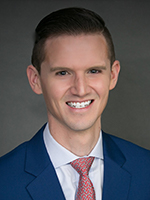 Rob is the Program Director and Senior Researcher for Multi-Faculty Sustainability and Impact Investing Special Projects, including The Impact-Weighted Accounts Project, the Social Impact Collaboratory, and the Project on Impact Investments at Harvard Business School. Previously, Rob was a Vice President at Goldman Sachs where he had roles in Investment Product Innovation, Strategy & Development, Alternative Investment Strategies, and Private Wealth Management. Rob has consulted with the National MS Society and the World Wildlife Fund and was a 2019 Three Cairns Climate Fellow focused on mitigating the environmental effects of charcoal use in Mozambique. Rob received his MBA from Columbia Business School in the Executive Program where he concentrated on Social Enterprise and Impact Investing. Rob is the 2019 recipient of the Carson Family Changemaker Award which recognizes commitment to the field of social enterprise. Rob earned his Bachelor’s Degree in Economics from Georgetown University.
Rob is the Program Director and Senior Researcher for Multi-Faculty Sustainability and Impact Investing Special Projects, including The Impact-Weighted Accounts Project, the Social Impact Collaboratory, and the Project on Impact Investments at Harvard Business School. Previously, Rob was a Vice President at Goldman Sachs where he had roles in Investment Product Innovation, Strategy & Development, Alternative Investment Strategies, and Private Wealth Management. Rob has consulted with the National MS Society and the World Wildlife Fund and was a 2019 Three Cairns Climate Fellow focused on mitigating the environmental effects of charcoal use in Mozambique. Rob received his MBA from Columbia Business School in the Executive Program where he concentrated on Social Enterprise and Impact Investing. Rob is the 2019 recipient of the Carson Family Changemaker Award which recognizes commitment to the field of social enterprise. Rob earned his Bachelor’s Degree in Economics from Georgetown University.
More Info
For more information on the Valuing Water Global Assessment project, please contact:
GIWS Secretariat
giws.secretariat@usask.ca
(306) 966-8014
Global Institute for Water Security
11 Innovation Blvd, Saskatoon, SK S7N 3H5
